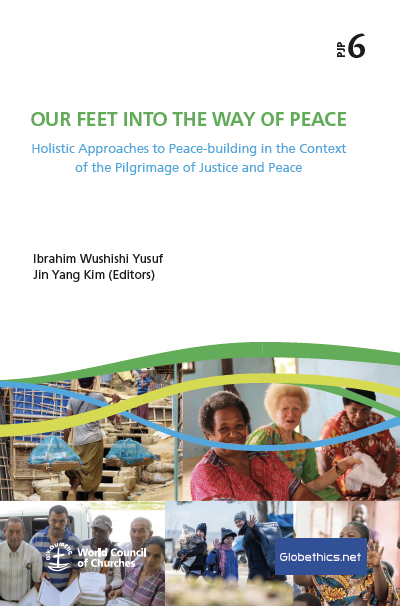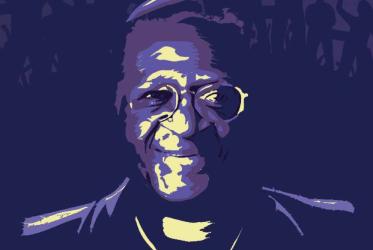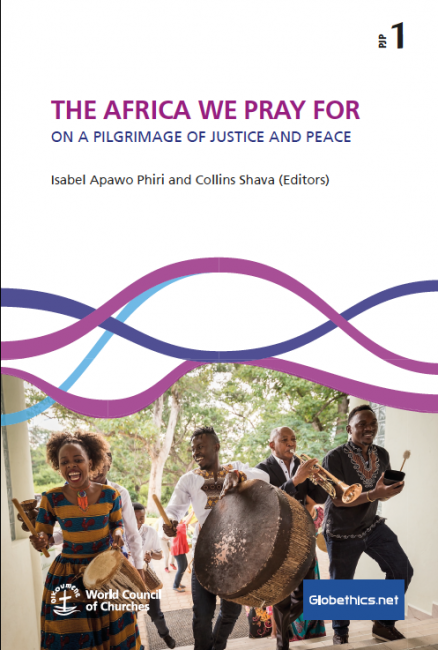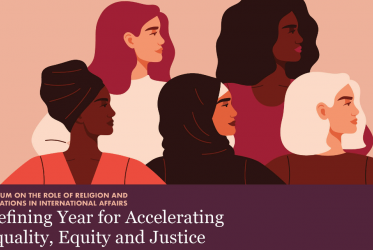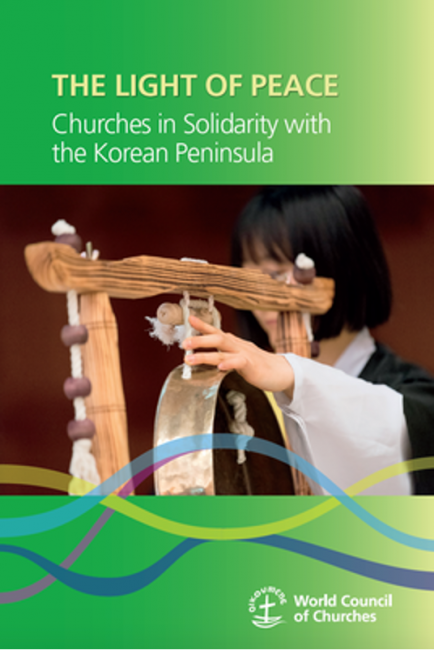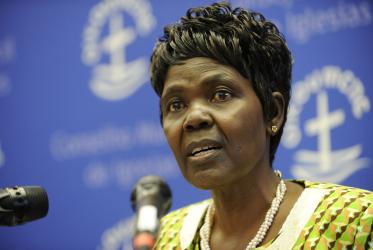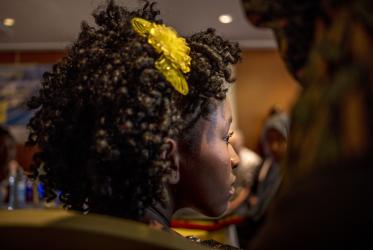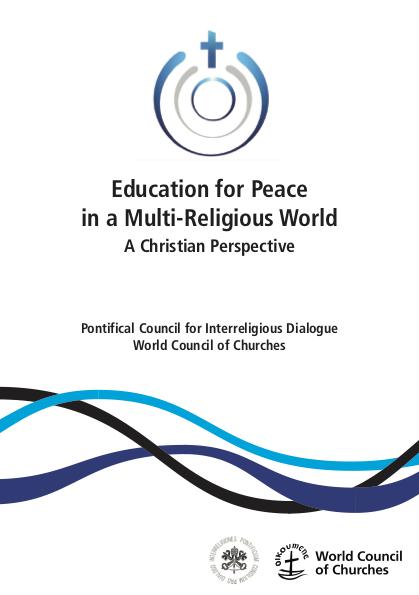Displaying 1 - 20 of 44
Reflections on the Pilgrimage of Justice and Peace in Europe
22 August 2022
Our Feet into the Way of Peace: PJP Series 6
Holistic Approaches to Peace-building in the Context of the Pilgrimage of Justice and Peace
19 August 2022
Hate Speech and Whiteness: PJP Series 5
Theological Reflections on the Journey Toward Racial Justice
19 August 2022
Towards an Ecumenical Theology of Companionship: PJP Series 3
A Study Document for the Ecumenical Pilgrimage of Justice and Peace
19 August 2022
Tutu’s legacy: A Zoom panel celebrating “the Arch”
03 February 2022
Dr Abuom reflects on women of faith as healers of creation
05 October 2021
South Sudan Church leaders welcome new cabinet
15 March 2020

